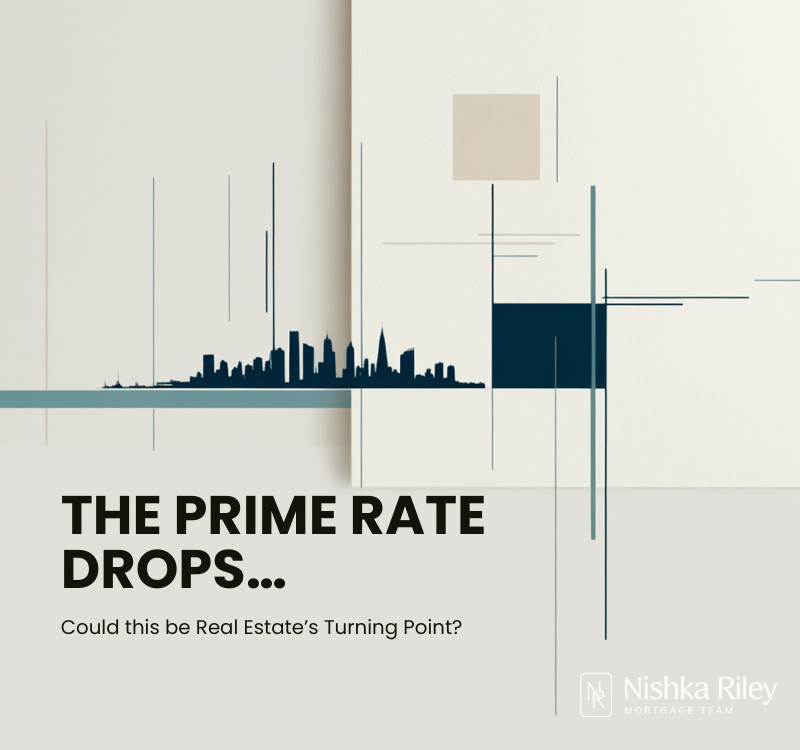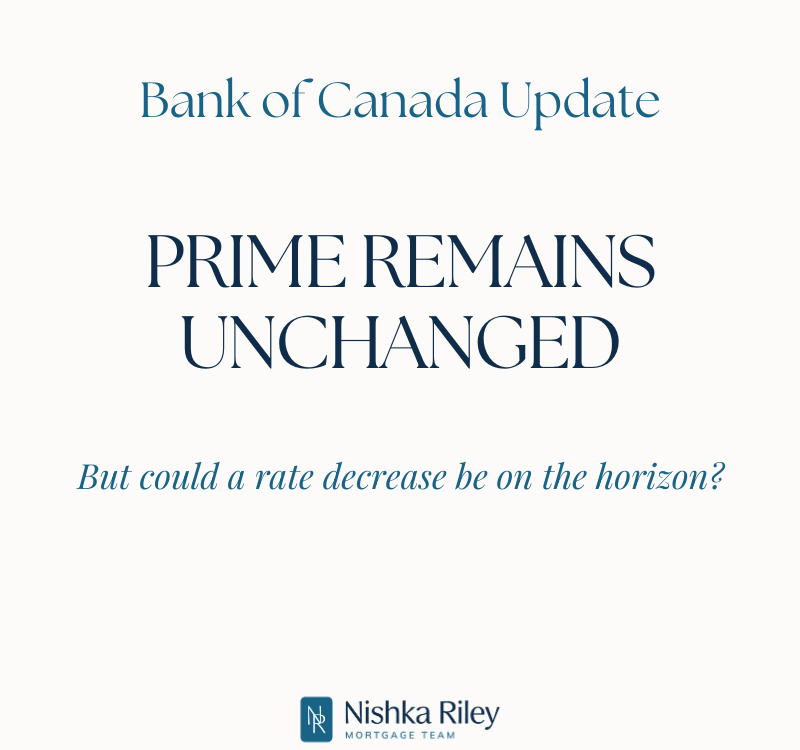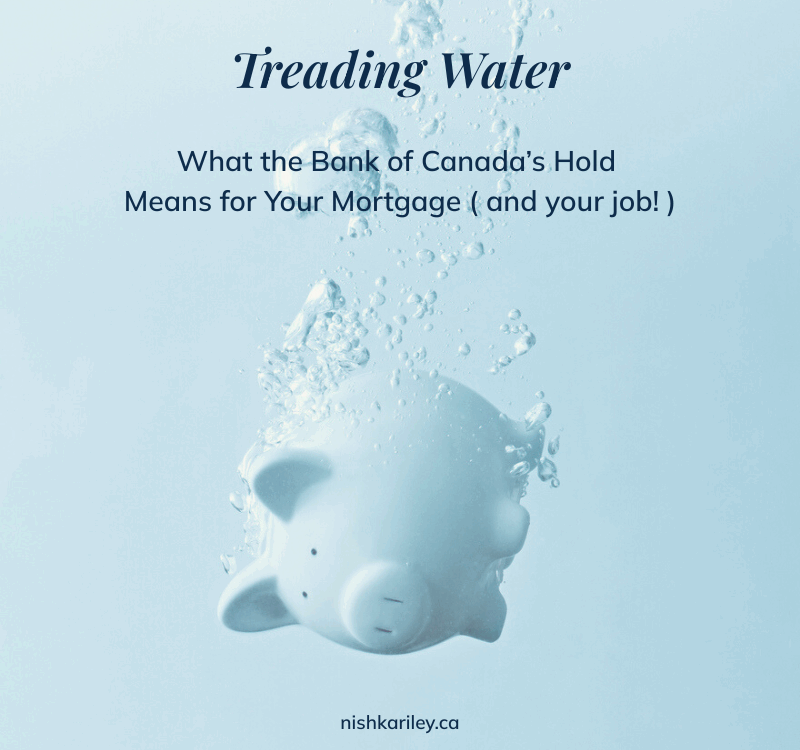
Rates on Hold Due To Trump Steal Tariffs
March 7, 2018
[Rate Update] Beware of the “Flea Market Effect”
May 30, 2018The Bank of Canada (BOC) left the prime rate unchanged today. Which means the prime is 3.45% with most institutions, or 3.6% if you bank with TD.
With their focus on NAFTA talks, geopolitical instability and the protectionist stance of our largest trading partner, the BOC feels that keeping their foot on the gas pedal (albeit very lightly) is still a good idea. A key comment in today’s announcement is that production capacity has been revised upward. With unemployment at record lows, this means that the inflationary pressure that comes with from wage growth isn’t going to play as much of a role as it usually does at this point of the economic cycle – which is good news for keeping inflation in check.
So big question is: which mortgage should you consider in this economic environment? Fixed or Variable?
Key Points From The Bank of Canada Announcement
- Prime rate left unchanged at 3.45%
- Canadian production capacity increased
- Exports not growing as fast as expected
- Inflation close to 2% target rate
How Your Mortgage Is Impacted
- Fixed-rate mortgages looking to the bond market for direction
- Variable rate mortgages starting to get more competitive
- Rate holds available for purchases until the mid-August
Is now the time to consider a variable rate mortgage?
- As prime increases, the variable discounts usually get larger
- this is because there is more profit margin for the bank as prime moves up.
- that means you can get a variable rate mortgage now for much cheaper than the best 5-year rate.
- Fixed rates increase before variable rates
- fixed are based on the bond market and the bond market is based on future expectations of where inflation is heading, vs. variable rates are based on past economic data.
- at this point of the interest rate cycle, fixed mortgages tend to be priced higher than they need to be since there is no clear trend on where rates are going. Variable rates are priced off prime which deals with the current situation.
- You can convert to a fixed rate without penalty
- not that we are advocates of trying to time the market, however, if there is a feeling that fixed rates could improve then opting for a variable now with an eye to converting to a fixed later can be a good strategy.
- Payout penalties are significantly lower
- one of the key advantages of a variable mortgage is you only pay 3 months interest when you pay it off.
- Compare this with the interest rate differential from a fixed mortgage which could be 6 months to 12 months of interest.
- If you are unsure about what you might be doing with your investment property down the road but want to enjoy a low-interest rate, a variable mortgage might be a good option.
The next Bank of Canada meeting is May 30th, 2018.

Did you Like my post? Don’t forget to Like my Page to keep current on news in the real estate market!
[thrive_lead_lock id=’1114′]Hidden Content[/thrive_lead_lock]




